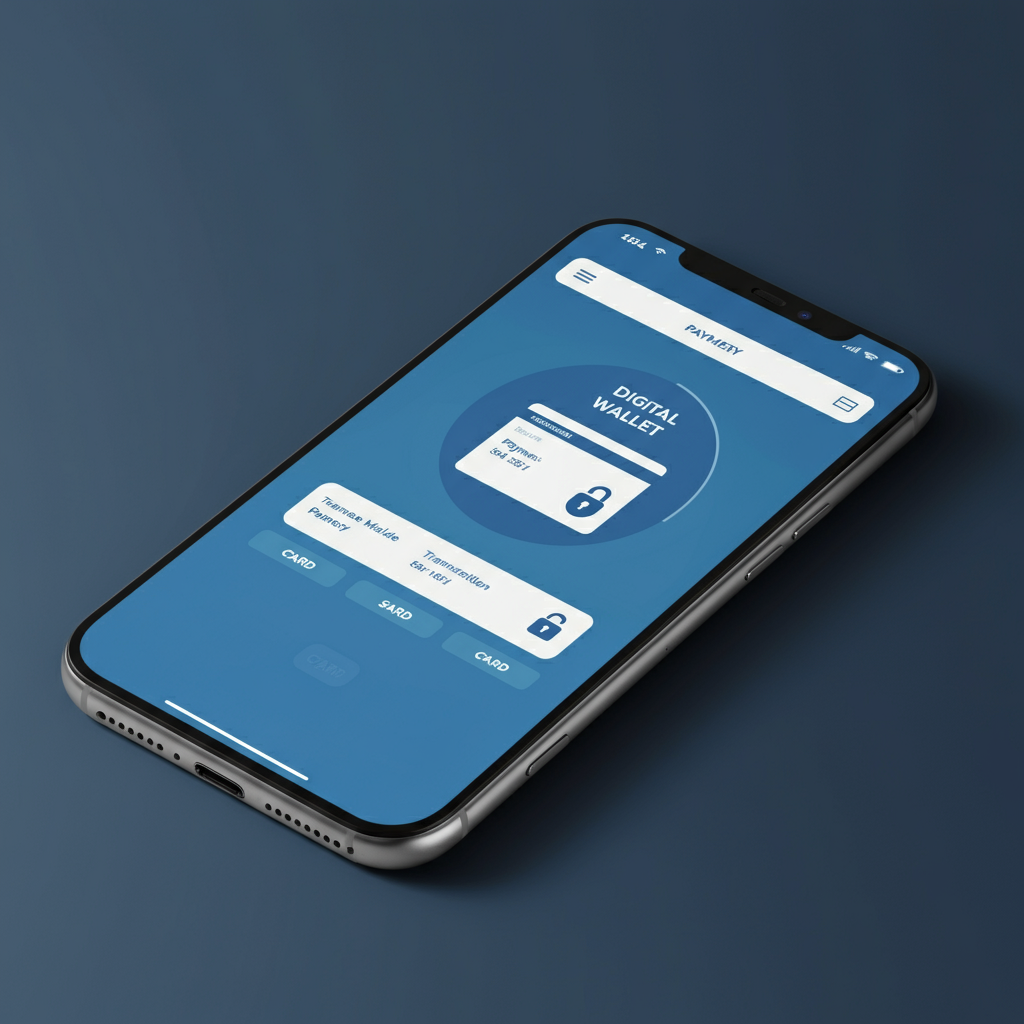Over the past decade, the way we manage and spend our money has undergone a dramatic change. Cash transactions are on the decline, and even cards are being replaced by the more convenient and secure digital wallets. But what exactly is a digital wallet, and why is it becoming such a buzzword in the world of finance?
This guide will take you through everything you need to know about digital wallets. From how they work and the different types to their benefits and potential risks, we’ll cover it all. By the end, you’ll not only know if a digital wallet is right for you, but you’ll also feel confident using one.
Introduction to Digital Wallets
What is a digital wallet?
A digital wallet, often referred to as an e-wallet, is a software-based system that allows you to store payment information securely and use it to perform transactions electronically. Instead of carrying around physical cash or debit/credit cards, a digital wallet stores all your payment details, making transactions as easy as tapping your phone or scanning a QR code.
Digital wallets are more than just tools for payment. They can also house loyalty cards, tickets, or even personal identification in some cases. Think of it as converting your physical wallet into a seamless, always-accessible digital version.
A brief history of digital wallets
The concept gained popularity in the early 2000s, but it really took off with the introduction of smartphones. With app-based wallets like PayPal paving the way and major players like Google and Apple entering the scene, digital wallets have grown exponentially. Today, they’re an integral part of the mobile payment revolution.
How Digital Wallets Work
The technology behind digital wallets
Digital wallets rely on a combination of cutting-edge technologies to ensure fast and secure transactions. Here’s how they work:
- Near Field Communication (NFC): Allows contactless payments by transmitting data between your phone and the payment terminal when they’re close to each other.
- QR Codes: Scanning a QR code links the transaction to your digital wallet for payment processing.
- Cloud Storage: Your payment details are securely stored in the cloud, not on your device, making it easy to access them from multiple devices.
Security measures
To alleviate concerns about safety, digital wallets use advanced security protocols:
- Encryption: Converts sensitive payment data into codes to prevent unauthorized access.
- Tokenization: Replaces your card details with a unique token during transactions, so your actual data is never exposed.
- Biometric Authentication: Fingerprint or facial recognition adds an extra layer of security.
With these features, paying digitally can often be safer than carrying around a physical wallet.
Types of Digital Wallets
Not all digital wallets are built the same. They serve different purposes, depending on your needs. Here are the main types:
Mobile wallets
Mobile wallets like Apple Pay, Google Pay, and Samsung Pay are among the most popular. They operate via apps on smartphones and are compatible with most modern payment terminals. Mobile wallets are perfect for quick, contactless payments at stores.
Online wallets
These wallets, such as PayPal, Skrill, and Venmo, store your payment details online for e-commerce transactions. They eliminate the need to enter card details manually and are widely accepted on online shopping platforms.
Cryptocurrency wallets
Cryptocurrency wallets are specifically built to store and manage digital currencies like Bitcoin and Ethereum. They can be either software-based or hardware-based, depending on how you want to handle your crypto investments.
Comparison Table
| Feature | Mobile Wallets | Online Wallets | Crypto Wallets |
|---|---|---|---|
| Primary Use | Offline payments | E-commerce | Crypto transactions |
| Device Dependencies | Smartphone | Any device | Varies |
| Security Measures | Biometric, NFC | Password, 2FA | Blockchain encryption |
Benefits of Using Digital Wallets

Digital wallets wouldn’t be on the rise without the numerous benefits they offer. Some of the standout advantages include:
- Convenience and Speed: Pay with a quick tap or scan, eliminating the need to fumble for cash or cards.
- Enhanced Security: Features such as encryption and biometric authentication make digital wallets safer than traditional methods.
- Rewards and Loyalty Integration: Many digital wallets allow you to easily track loyalty programs and redeem rewards automatically.
- Eco-friendly: By reducing the need for paper bills, receipts, and plastic cards, digital wallets are more environmentally friendly.
These benefits explain why digital wallets are becoming the payment method of choice for millions worldwide.
Risks and Challenges
Like any technology, digital wallets aren’t without their drawbacks. Here are a few risks and challenges users should be aware of:
Security risks
While digital wallets are generally secure, they’re not immune to hacking, phishing scams, or other forms of cybercrime. Always use strong, unique passwords and enable two-factor authentication.
Privacy concerns
Mobile wallets can collect a lot of your usage data, which could potentially be shared with third-parties. Be sure to review privacy policies before signing up.
Limited acceptance
Though growth is rapid, some retailers, especially smaller businesses, may not yet accept digital wallet payments.
Being aware of these challenges can help you use digital wallets safely and effectively.
How to Set Up and Use a Digital Wallet
Getting started with a digital wallet is easier than you might think:
- Choose a Wallet: Decide on a platform like Google Pay, Apple Pay, or PayPal, based on your preferences and device compatibility.
- Download the App: Install the wallet app from your device’s official app store.
- Add Payment Methods: Link your credit/debit cards or bank account securely.
- Start Paying: At checkout, simply tap your phone, scan a QR code, or click the “Pay with [Wallet Name]” option.
That’s it! You’re now ready to enjoy the convenience of digital payments.
The Future of Digital Wallets
Emerging trends
Technologies like biometrics and blockchain are reshaping how digital wallets function. Biometric authentication is making payments more secure, while blockchain ensures greater transparency and trust.
Integration with IoT devices
Imagine paying for fuel the second your car pulls into a smart gas station or having your coffee maker order its own beans. The integration of digital wallets with IoT devices is already making waves.
Global adoption
Countries like China and Sweden are leading the charge toward cashless societies. With digital wallets at the forefront, global adoption seems inevitable.
Digital Wallets vs Traditional Payment Methods
How do digital wallets stack up against traditional payment methods? Here’s a quick comparison:
Pros and Cons List
| Payment Method | Advantages | Disadvantages |
|---|---|---|
| Digital Wallets | Speed, security, eco-friendly | Limited acceptance, requires tech knowledge |
| Traditional Methods | Universal acceptance, tangible | Slower, more prone to theft/hacking |
It’s clear that while traditional methods have their merits, digital wallets are swiftly becoming the superior option.
People Also Ask
Q1. How secure are digital wallets?
Digital wallets are highly secure, thanks to technologies like encryption, tokenization, and biometric authentication.
Q2. Can I use digital wallets without a smartphone?
Some offline wallets or payment tokens like PayPal’s physical cards allow non-smartphone users to access digital payment systems.
Q3. Are digital wallets accepted everywhere?
While acceptance is growing rapidly, not all retailers or regions support digital wallets yet.
Q4. Can digital wallets store more than just payment info?
Yes, they can also store tickets, IDs, and loyalty cards in many cases.
Q5. What is the best digital wallet for 2023?
It depends on your needs. Apple Pay is excellent for iOS users, while PayPal is great for e-commerce.
Why Digital Wallets Are the Future of Payments
Digital wallets are no longer a luxury but a necessity in our fast-paced, tech-driven world. They streamline payments, enhance security, and align with the global shift toward a cashless society.
Take control of your finances with the power of a digital wallet. Start by exploring the right one for you, and step into the future of payments today.
